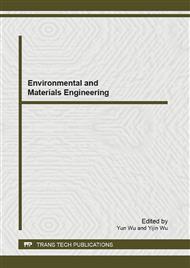p.1166
p.1171
p.1176
p.1180
p.1186
p.1191
p.1196
p.1200
p.1210
Design Mechanism on Dynamic Incentive Machnism Considering Special Talents of the Manager
Abstract:
Suppose the firm's output is influenced by the agent’s effort level observable and the ability unobservable, researching the optimal level of incentives under the two levels of incentives associated. Study found that corporate client based on the first period of corporate performance, the agents ability to judge the case, risk aversion, the variance of the degree of capacity, the degree of attention of the principal agents the ability have an impact on the agents first and second of the optimal incentive level. In addition, of the optimal incentive level in first period is correlated with the contribution of the efforts with the manager of the firm's output, the agent's incentive level in the second period as well as the effort cost associated of the first period; while the second period of the optimal the incentive level is a decreasing function of the current cost of effort.
Info:
Periodical:
Pages:
1191-1195
DOI:
Citation:
Online since:
February 2013
Authors:
Keywords:
Price:
Сopyright:
© 2013 Trans Tech Publications Ltd. All Rights Reserved
Share:
Citation:


